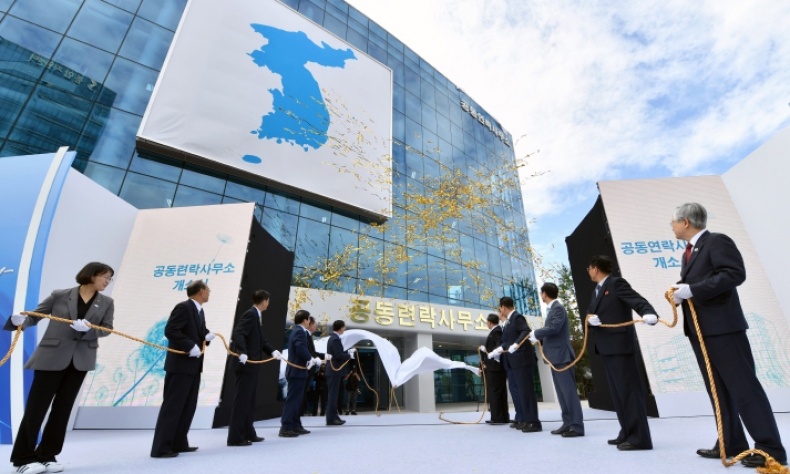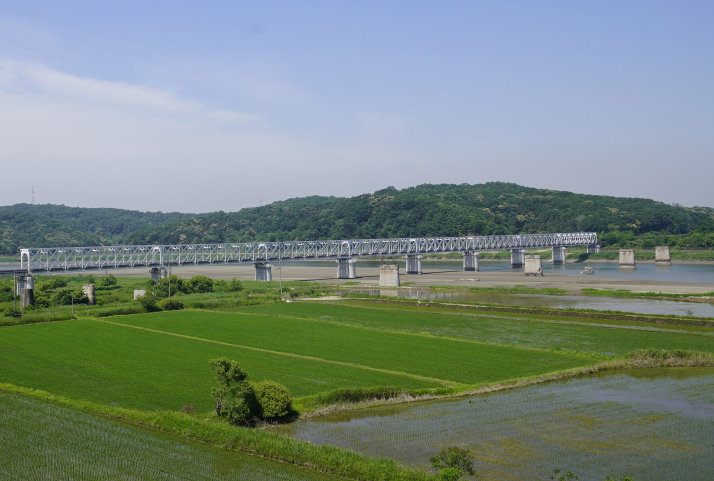
Koreans should consolidate North-South rapport independent of the U.S.
In the time that remains, it is of paramount importance to find a way for the two nations to resume communication, not only at the highest level but also people-to-people exchanges. The task is arduous but can be done with sincerity and patience.
The Korean Peninsula has become restive again after thousands of propaganda leaflets were dropped into the Democratic People’s Republic of Korea (DPRK) from hydrogen balloons sent from the Republic of Korea (ROK) on May 31. It was said to be the work of an organization of DPRK defectors.
The DPRK has always been sensitive about leaflet propaganda, concerned that it could undermine its national security. Such actions also violate a bilateral agreement signed in 2018 that bans all hostile acts, including loud-speaker broadcasting and scattering leaflets along the North-South border.
In response to the May 31 act, Kim Yo Jong, First Vice Department Director of the Central Committee of the Workers’ Party of Korea and sister of DPRK leader Kim Jong Un, issued a statement on June 4, warning that her country would take decisive action if the ROK failed to stop the activists. The ROK Government then announced that it would push for a new law banning the dispersion of anti-DPRK leaflets and materials.
At that stage, things still seemed under control. But in a rapid change in the situation, the DPRK said on June 16 that it had demolished by explosion the four-storied joint liaison office, a symbol of inter-Korean reconciliation established in its border town of Kaesong in 2018.
Actually, the DPRK had a reason. The leaflets were not merely political propaganda. Some of the contents were also a personal attack on Kim Jong Un.
But when the DPRK warned that it would cut off all communication and liaison lines with the ROK, the latter reacted in a routine way, merely expressing “strong regret” about the incident even as the ROK media called the promised new law an act of censorship. This lack of ROK understanding about the seriousness of the situation aggravated the DPRK response.
On April 20, 2018, a hotline was set up between Kim Jong Un and ROK President Moon Jae-in. But after their meeting in Panmunjom later in the month, the hotline was hardly used. If the two leaders had resorted to it to communicate directly with each other, perhaps the tension would not have escalated.
For both countries, the most important thing at the moment is to calm down and find a rational solution as it will be harder than ever for them to get the relations back on track after new setbacks.
U.S. role
The Korean Peninsula issue involves multiple actors. Though its core is the inter-Korean relationship, it is also impacted by the U.S. policy toward the peninsula.
Since reconciliation between the two countries began in 1991, the U.S. has extensively intervened in the process, demanding the DPRK abandon its nuclear program first. The six-party talks, a mechanism designed to resolve the nuclear issue through negations among the DPRK, the ROK, the U.S., China, Russia and Japan, came to a halt with the DPRK’s withdrawal in 2009. It was followed by the U.S. increasing sanctions against the DPRK. This hardline approach has made it almost impossible for DPRK-ROK relations to develop on their own.
The ROK tends to value its military alliance with the U.S. more than national reconciliation, regarding it as not only the key to its security, but also a major channel to elevate its international standing. Recently, for example, the U.S. invited Moon to the Group of Seven leaders’ meeting, which the ROK presidential Blue House viewed as “a step toward a new international order that will raise the country to a new level in international society.”
However, a country’s influence in the international arena is related to its ability to solve international affairs independently. The more the ROK relies on its alliance with the U.S., the more tense inter-Korean relations will become. Moreover, the protracted deadlock between the DPRK and the ROK may lead to the latter eventually abandoning its responsibility to promote the relations and eventually, when problems arise, rely on U.S. support to address them.
In 2018, great progress was made in inter-Korean relations. Kim Jong Un and Moon held their first meeting and signed the Panmunjom Declaration on April 27, agreeing to complete denuclearization and upgrade their armistice agreement into a peace treaty. Then came the Pyongyang Declaration on September 19 the same year to end hostile relations, followed by a comprehensive military agreement to ban all hostile acts.
But since then, there has been little progress. No regular high-level exchanges have been held and the result has been a natural accumulation of problems and doubts springing out of the indifference. Subsequently, when problems appear, due to the long inaction, the ROK is unable to respond appropriately, further complicating the situation.

Need for communication
In the case of the leaflets, for example, the ROK says it cannot restrict freedom of speech. However, where the law is concerned, freedom of speech is never unlimited, even in Western countries.
Moreover, both the DPRK and the ROK are sovereign countries and members of the UN. Agreements between their governments should also be binding on their citizens. Any words or actions that undermine such agreements should be restricted or banned.
Reconciliation between the two nations is a complicated issue going beyond signing a few documents. It needs plenty of detailed work, patience and sincerity. This is particularly true now that the U.S. has continued to impose extreme sanctions on the DPRK.
In the past three decades, little was done on the social and psychological level except for signing some inter-governmental documents. Since 2018, the ROK has made little effort to enhance exchanges with the DPRK.
Denuclearization talks between the DPRK and the U.S. have also stalled since the second summit between Kim Jong Un and U.S. President Donald Trump ended with no agreement in February 2019. The DPRK has displayed anger and disappointment over the deadlocked negotiations and wanted the ROK to play a more significant role to push the U.S. to return to the negotiation table.
Moon’s presidency will end in 2022. In the time that remains, it is of paramount importance to find a way for the two nations to resume communication, not only at the highest level but also people-to-people exchanges. The task is arduous but can be done with sincerity and patience.
The author is an op-ed contributor to Beijing Review and a senior researcher on international studies.
 Facebook
Facebook
 Twitter
Twitter
 Linkedin
Linkedin
 Google +
Google +










